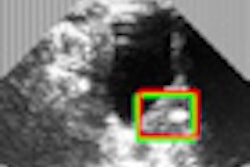Radiation therapy developer Varian Medical Systems is highlighting early results from a prospective phase II trial showing that patients with low-risk prostate cancer who underwent stereotactic body radiation therapy (SBRT) experienced minimal toxicities.
The results were presented today at the American Society for Radiation Oncology (ASTRO) annual meeting in Miami Beach, FL.
Eighty men have been followed in the clinical trial for a median of three years, and all of these low-risk prostate cancer patients have been followed for at least 18 months since completion of treatment. They underwent five alternate-day sessions of SBRT delivering 8 Gy with image-guided radiotherapy (Trilogy, Varian). Real-time tumor target tracking (Calypso GPS for the Body, Calypso Medical Technologies) was continuous during treatment delivery to guarantee that the target prescription of 2 mm would be maintained.
The duration of urinary irritation and obstruction was brief, with patients experiencing a clinically significant decline in urinary irritation and obstruction at four weeks following treatment. Rectal toxicity was uncommon, with only two patients reporting mild rectal bleeding six and nine months following treatment. Pre- and post-treatment quality-of-life scores were favorable, according to lead author and presenter Dr. Constantine Mantz, a radiation oncologist at 21st Century Oncology in Fort Myers, FL.
The researchers used the Expanded Prostate Cancer Index Composite (EPIC) questionnaire, which measures differed domains of patient health, to assess patient-reported quality of life. Reported side effects included those in the table below.
Side effects from SBRT
|
Tumor response was measured using prostate-specific antigen (PSA) measurements, which fell rapidly over the first 24 months, according to Mantz. The biochemical response measurement mean pretreatment value was 6.92 ng/mL. This declined to 1.03 ng/mL one year following treatment and to 0.2 ng/mL at two years.



















